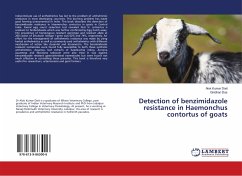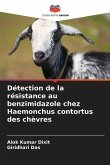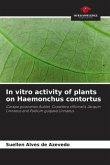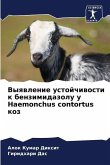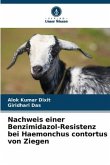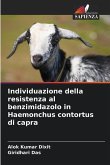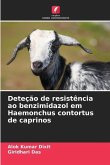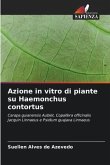Indiscriminate use of anthelmintics has led to the problem of anthelmintic resistance in most developing countries. This burning problem has made goat farming uneconomical in India. This book describes the detection of benzimidazole resistance in Haemonchus contortus in goats in Central India. Faecal egg count reduction test revealed that H. contortus is resistant to fenbendazole which was further confirmed by Egg hatch assay. The prevalence of homozygous resistant genotype and resistant allele at 200 codon of beta-tubulin Isotype I gene was 62% and 74%, respectively. An effort for the management of anthelmintic resistance was made by using herbal anthelmintics as well as commonly used anthelmintics with different mechanism of action like closantel and doramectin. The benzimidazole resistant nematodes were found fully susceptible to both these synthetic anthelmintics. Aqueous leaf extracts of Azadirachta indica, Annona squamosa and Nicotiana tabacum were also tried in vivo against benzimidazole resistant gastrointestinal naematodes but were found not much effective in controlling these parasites. This book is therefore very useful for researchers, veterinarians and goat farmers.

